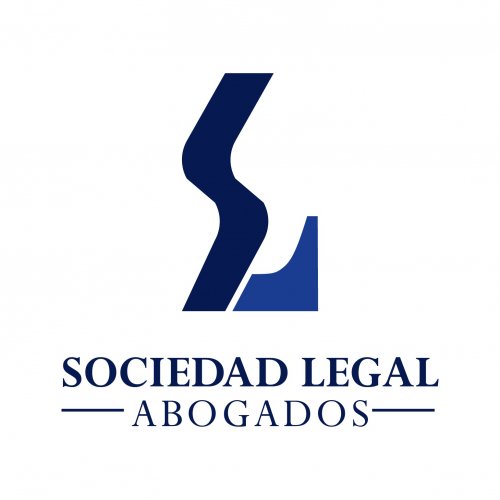Best Child Custody Lawyers in Ecuador
Share your needs with us, get contacted by law firms.
Free. Takes 2 min.
Free Guide to Hiring a Family Lawyer
Or refine your search by selecting a city:
List of the best lawyers in Ecuador
About Child Custody Law in Ecuador
In Ecuador, child custody law is designed to ensure the best interests of the child are prioritized during any custody proceedings. This involves determining which parent will have physical and legal custody of the child. The law considers various factors such as the child’s needs, the parents' ability to provide for those needs, and the child's own wishes if they are of a sufficient age and maturity to express them. The courts aim to create a stable and supportive environment for the child while maintaining strong relationships with both parents whenever possible.
Why You May Need a Lawyer
Legal complexities and emotional challenges often accompany child custody cases. You may need a lawyer if you are facing any of the following situations:
- Disputes with the other parent regarding custody arrangements
- Desire to modify existing custody orders due to changes in circumstances
- Concerns about the child's safety or wellbeing in the current custody arrangement
- Cross-border custody issues, such as relocation
- Understanding your parental rights and responsibilities under Ecuadorian law
An experienced lawyer can provide guidance, represent your interests in court, and help negotiate and mediate arrangements that prioritize your child's wellbeing.
Local Laws Overview
Ecuador’s child custody laws are guided primarily by its Civil Code and the Childhood and Adolescence Code (Código de la Niñez y Adolescencia). Key aspects include:
- Best Interests of the Child: This principle guides all judicial decisions relating to custody and is intended to ensure that the outcome supports the child's welfare.
- Parental Authority: Both parents typically share parental authority unless a court decides otherwise.
- Types of Custody: Custody can be awarded solely to one parent or shared between both, depending on what the court feels is in the child’s best interests.
- Visitation Rights: Non-custodial parents are usually granted visitation rights to maintain a relationship with the child.
- Modification of Custody Orders: Either parent can request a modification of custody arrangements if there’s a significant change in circumstances.
Frequently Asked Questions
What factors does the court consider when deciding custody?
The court looks at various factors, including the child's emotional and physical needs, each parent's ability to provide for these needs, the child's existing relationship with each parent, and any history of abuse or neglect.
Can children choose which parent to live with?
While children's preferences may be considered, especially if they are older and more mature, the final decision rests with the court, which prioritizes their best interests.
Are grandparents granted visitation rights?
Yes, under specific circumstances, grandparents and other family members can petition the court for visitation rights if they serve the child's interests.
How is child support determined?
Child support is calculated based on the needs of the child and the financial situation of each parent. The court will seek to ensure that the child's living standard is maintained post-separation.
What happens if a parent wants to move to another country with the child?
International relocation typically requires the consent of the other parent or a court order, as it impacts custody and visitation arrangements.
Is mediation required before going to court?
Mediation is encouraged as a way to reach an amicable agreement outside of court. In some cases, the court may require it before proceeding to a hearing.
Can custody orders be changed?
Yes, custody orders can be modified if it's shown that there's been a significant change in circumstances affecting the child’s welfare.
How long does a custody case take?
The duration of a custody case can vary greatly depending on its complexity, whether both parents agree, and the court's schedule. It could take several months to over a year.
Do unmarried parents have different rights?
Unmarried parents have the same rights as married parents, but establishing paternity may be required for legal proceedings.
What if the other parent violates the custody agreement?
If a parent violates the custody agreement, legal enforcement actions can be taken, which might include filing a motion with the court.
Additional Resources
For more guidance on child custody issues, consider reaching out to the following resources:
- The Consejo de la Judicatura: Provides legal information and assistance related to family law.
- Defensoría del Pueblo (Ombudsman): This governmental body can offer support and mediation services.
- Private Legal Practitioners: Engaging with a family lawyer who specializes in custody disputes can provide personalized legal advice.
- Non-Profit Organizations: Some NGOs provide legal aid for family law cases, focusing on child welfare.
Next Steps
If you require legal assistance in a child custody matter, consider the following steps:
- Consult a Lawyer: Find a qualified lawyer specializing in family law to evaluate your situation and provide guidance.
- Gather Documentation: Collect evidence that supports your custody claim, such as financial records, home environment reports, and testimonies.
- Consider Mediation: Explore mediation to resolve custody issues amicably and potentially avoid lengthy court proceedings.
- File a Petition: If necessary, your lawyer can help you file a custody petition in the appropriate court to initiate proceedings.
Taking proactive steps and seeking professional legal advice can help ensure that the outcome prioritizes your child’s best interests and welfare.
Lawzana helps you find the best lawyers and law firms in Ecuador through a curated and pre-screened list of qualified legal professionals. Our platform offers rankings and detailed profiles of attorneys and law firms, allowing you to compare based on practice areas, including Child Custody, experience, and client feedback.
Each profile includes a description of the firm's areas of practice, client reviews, team members and partners, year of establishment, spoken languages, office locations, contact information, social media presence, and any published articles or resources. Most firms on our platform speak English and are experienced in both local and international legal matters.
Get a quote from top-rated law firms in Ecuador — quickly, securely, and without unnecessary hassle.
Disclaimer:
The information provided on this page is for general informational purposes only and does not constitute legal advice. While we strive to ensure the accuracy and relevance of the content, legal information may change over time, and interpretations of the law can vary. You should always consult with a qualified legal professional for advice specific to your situation.
We disclaim all liability for actions taken or not taken based on the content of this page. If you believe any information is incorrect or outdated, please contact us, and we will review and update it where appropriate.
Browse child custody law firms by city in Ecuador
Refine your search by selecting a city.













